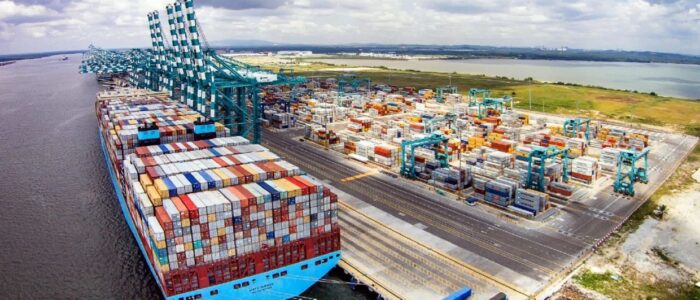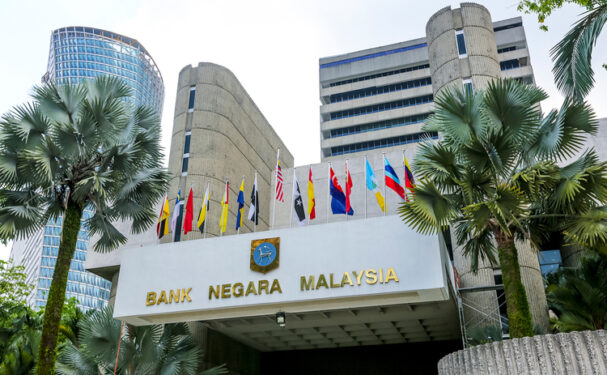WE forecast the global economy to muddle through a soft landing in 2024 albeit macro risks still remaining. These include elevated trade tensions between the US and China, the on-going conflict in Ukraine and the recent outbreak of war between Israel and Hamas in the Middle East.
We estimate domestic economic growth to grow by 4.5% in 2024, aided by a recovery in exports and continued growth in domestic demand, albeit cautiously.
Domestic demand will contribute 4.3 percentage points to gross domestic product (GDP) growth while exports of goods and services will contribute 1.4 percentage points. Both fiscal and monetary policies would remain supportive of the economy.
We estimate exports to recover gradually to 4.0% in 2024, a turnaround from estimated decline of 7.4% in 2023. The positive factors underpinning our exports outlook are improving global demand, a recovery in the tech downturn cycle, and increasing demand of chips for electric vehicles (EVs), artificial intelligence (AI) and the fifth-generation (5G) technology.
The Budget 2024’s budgetary operations are expected to provide moderate fiscal support to the economy through development expenditure allocation of RM90 bil.
The fiscal deficit will reduce to RM85.4 bil or -4.3% of GDP in 2024 from estimated deficit of RM93.2 bil or 5.0% of GDP in 2023. There were allocations for industrial development, green investment, road construction and maintenance, public infrastructure and utilities, flood mitigation projects, building of schools and public housing development.

We expect households and consumers to bend and cautious in their discretionary spending.
Private consumption growth has normalised to estimated 5.3% growth in 2023 and will grow by 4.6% in 2024 (11.2% in 2022; 7.1% per annum in 2011-2019).
There are numerous reasons to expect consumer spending growth to slow in 2024: targeted subsidy rationalisation, high cost of living and inflation risk as well as higher service tax rate for some services.
Tight labour market condition (estimated unemployment rate at 3.3% in 2024) continues to support employment and income levels (average increment of 5.1% in 2024 as surveyed).
Spurring FDIs
We look to higher private investment growth in 2024, supported by some realisation of approved investments averaging RM288.6 bil per year in 2021-2022 and RM225.0 bil in January-September 2023, mainly in the electronics and electrical products, AI, technology, transport equipment and information and communications technology (ICT) subsectors.
Catalysts to drive foreign direct investment (FDI) and domestic direct investment (DDI) will come from the implementation of New Industrial Master Plan (NIMP) 2030, National Energy Transition Roadmap (NETR) and the Mid-Term Review of the 12th Malaysia Plan (2021-2025).
We see several factors that could dampen business investments: the implementation of subsidy rationalisation in phases, concerns about business costs pressure; impact of the weakening ringgit on imported raw materials as well as machinery and equipment.
Additionally, the implementation of progressive wage model and multi-tiered levy would mean increased employment cost. Costs associated with the ESG (environment, social and governance)-compliance and climate change-induced disruptions could restrain SMEs (small medium enterprises) to undertake investment.

Considering the cross currents, we expect private investment to increase by 5.5% in 2024 from estimated 4.6% in 2023 (2022: 7.2%) but still below 8.8% per annum in 2011-2019.
The key drivers of our estimate GDP growth of 4.5% in 2024 will be primarily driven by the services sector (estimated 5.5% in 2024 vs 5.3% in 2023), underpinned by sustained domestic consumption supporting retailing, restaurants, accommodation and communication segments.
We expect free-visa entry for China, India and several Middle Eastern countries starting December 2023 to boost stronger revival in tourism segment in 2024 and beyond.
In the first nine months of 2023, Malaysia recorded a total of 14 million tourist arrivals with the government having revised tourism target to 19.1 million by end-2023 from 16.1 million previously.
For 2024, we expect international tourists to reach 24 million with the government likely to revise higher the 26.1 million tourists target set for 2026 Visit Malaysia Year.
Controlling inflation
The manufacturing sector is poised to improve stronger (estimated 4.0% in 2024 vs 1.3% in 2023), thanks to a gradual recovery in external demand for electronics and electrical products, chemical and chemical products, and refined petroleum products.

Domestic-market oriented industries will be backed by higher output in transport equipment and construction related segments in line with continued growth in consumption and investment.
We expect continued higher growth in the construction sector (estimated 7.2% in 2024 vs 6.5% in 2023), underpinned by strategic infrastructure and utilities projects that include on-going projects such as the Central Spine Road (CSR), Pan Borneo Sabah Highway and the acceleration of projects under the 12th Malaysia Plan as well as the development of affordable public and private housing.
Both headline and core inflation have moderated significantly to an average of 2.5% and 3.2% respectively in January-November 2023, mainly due to easing cost of living measures such as the Menu Rahmah and continued subsidies and price controls for rice, eggs, sugar, flour and cooking oil as well as slower prices of transportation.

While food prices have eased, services inflation remained high. Inflation is expected to increase higher to 2.8%-3.5% in 2024 (2023: estimated at 2.5%).
Several factors could add to inflation risk, namely:
- The government’s intention to review price controls and subsidies will affect the inflation outlook and demand conditions;
- A gradual shift towards targeted subsidy mechanism starting in 1Q 2024;
- The expansion of service tax (includes logistic, brokerage, underwriting and karaoke services) with rate increases to 8% from 6% (excluding food and beverages, telecommunication services, parking and logistic services); and
- Risks come from fluctuation in exchange rates and supply-related factors such as global commodity prices, geopolitical uncertainties and climatic conditions.
We expect Bank Negara Malaysia (BNM) to keep the overnight policy rate (OPR) steady at 3.0% throughout 2024 amid upside risks to inflation as the government contemplates revising subsidies and price controls.
BNM does not normally react to cost-pushed inflation unless it sets off demand pressures due to wage-price spiral. The central bank is unlikely to loosen monetary policy as this might risk destabilising the ringgit. – Jan 2, 2023
Lee Heng Guie is the executive director at Socio-Economic Research Centre (SERC) Malaysia.
The views expressed are solely of the author and do not necessarily reflect those of Focus Malaysia.









